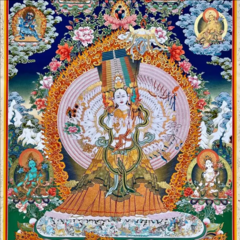Bob Marley
Bob Marley(鲍勃·马利)是牙买加的民族英雄。他正直的品格、对理想的执着、和对牙买加以及世界流行音乐的贡献,使他站到了最伟大的音乐家的行列里。大事记1945年2月6日。马利生于牙买加的圣安娜区的帕里什。他童年的时光都在贫民窟中度过。音乐和足球是唯一能给他快乐的东西。这段生活在马利心中留下了深深的烙樱使他永远成为了人民,特别是贫苦劳动者的代言人和一名反种族主义斗士。60年代马利开始了演唱生涯。他的音乐风格深受Sam Cook(萨姆·库克)Fats Domind(胖子多米诺)的影响,另外,Joe Higgs(乔·希金斯)对马利的帮助是巨大的。虽然他在以后很长时间内都没有给马利真正的经济回报。但也是他教会了马利弹吉他、作曲。还使马利开始接触“Rastafarireligion”(拉斯塔法教)。这是牙买加的一种宗教,它的口号是“同一个上帝,同一个目标,同一种命运”这个口号将对非洲家园有归宿感、有同样信仰和理想的黑人团结起来。号召所有的黑人都应该自强团结,再也不要在白人面前低三下四。主张用非暴力的方式完成种族平等的伟大事业。这个宗教对马利的影响是深远而巨大的。马利曾说:“我是一名拉斯塔法教徒,并且一直都是。”他将这种宗教的精华提炼出来融入了自己以后的音乐中。1964年马利在经过最初颠沛流离的音乐生活后,已经在牙买加小有名气。他与Jimmy Cliff(吉米·克利夫)和Desmond Dekker(德斯蒙德·德克尔)Junior Braithwaite(朱尼奥·布雷斯维特)、Beverley Kelso(贝弗利·凯尔索)Cherry Smith(彻里·史密斯)组建了“Wailing Wailers“(哭泣着的哭泣者)乐队。脾气温和的马利以他与生俱来的领袖气质和才华成为乐队的核心。对于乐队的名字,马利曾说:“任何为了正义与公正而呐喊的人都是哭泣者。”在音乐风格上他们将爵士与牙买加的曼陀乐和斯加乐结合在一起。马利也一反以前西服革履的舞台装束。他总穿着那么几件劳动布的旧衬衫登台,留着野性的长发,并用草结成多色的条绺。这是拉斯塔法教有特殊意义的颜色,红色代表人民的鲜血,金黄色代表财富,绿色代表土地的富饶。乐队除了翻唱一些The Beatles(甲壳虫)、Bob Dylan(鲍勃·迪伦)的歌曲也演唱自己的优秀作品。1965年,马利遇到他后来的终身伴侣,美丽的Rita Anderson(丽塔·安得森)。丽塔是毛遂自荐来到乐队的。当乐队成员听过她的演唱后,大家一致把乐队另一位主唱的位置给了丽塔并称她为“灵魂歌手”。渐渐地马利被丽塔的美丽和歌声打动,而丽塔也因马利的为人和才华对他爱慕已久。于是第二年马利就和丽塔结婚了。1966年,布雷斯维特离开了乐队,刚刚结婚的马利也到他母亲居住的美国特拉华州呆了一段时间,直到美国政府要他参加越战。一直反对暴力的马利当然没有同意,于是他回到了牙买加联合以前的乐队成员重组了哭嚎者乐队。并成立了自己的唱片公司“Wailin'soul ”(哭泣灵魂)。发行了一些引起轰动的单曲。这些歌曲既有真挚委婉的爱情故事,有反种族歧视的战斗号角,有犀利的政治宣言,也有对广大劳动者的生活和向往的描述。此时马利的音乐风格也已经将斯加音乐向低迷、节奏强烈、又极具感染力的雷吉音乐倾斜。但由于主流音乐界对雷吉乐这种第三世界国家音乐的蔑视和乐队发行的单曲并没有得到相应的报酬,唱片公司很快就破产了。乐队成员因吸毒被捕入狱。马利度过了最艰难的一段时光。1968年,乐队正式改名为“哭泣者”乐队。并签约“黑马”唱片公司。1971年乐队推出了专辑《Catch A Fire》(引火烧身),引起英美音乐界的广泛关注,1973年又发行了专辑《Burnin'1973》(灼烧),借上一张专辑的良好势头,这张专辑让全世界的乐迷都认识了这支乐队。尤其是广大的有色人种和第三世界人民,更因为马利唱出了他们的心声而感动不已。马利在歌中唱道:“从头脑的奴役中解放自己,只有我们自己能放飞我们的思想。不要怕什么原子能,因为没有谁能阻挡这个时代。如果我们只是静待观望,那我们扼杀我们希望的时光还要有多长?为什么不放声歌唱,歌唱这些自由的旋律,因为我的所有,只是这些救赎歌曲。”上这张中很多的歌曲都被其他乐队或乐手翻唱。其中最有名的是“I Shot The Sheriff”(我向警长开枪),它被著名音乐人Clapton(克莱普顿)翻唱并取得英国排行榜榜首地位。乐队终于开始走出低谷。1974年马利和他的乐队在英国巡回演出中第一次唱出了那首另整个世界陶醉的雷吉音乐的经典之作《No Woman No Cry》(不,女人不要哭泣)。歌曲用最动人的旋律和只有雷吉乐才有的哀惋而强烈的节奏打动了所有听过它的人,包括那些以前蔑视过雷吉乐的人。马利和雷吉一下子变成了最有人缘的乐手和音乐。但他并没有忘记自己以前苦难的生活,在这首歌中马利唱道:“即便在更光辉的未来,你也不能忘掉过去。”于是,在1976年,马利决定在牙买加举行一场名为“微笑的牙买加”的个人音乐会。然而意外发生了。1976年正是牙买加大选之年,全国人民党和牙买加工党这两个对立的政党为了获得大选胜利几乎使得牙买加分裂了。牙买加人民也分裂成了两派。暴力和犯罪充斥了整个国家。牙买加总理不得不对全国施行紧急状态法以控制国内局势。马利有很多歌因其对人民的不幸遭遇的关注和对现行政府的无能的抨击也被宣布为非法。而马利看到他深爱的祖国因为内部矛盾而痛苦挣扎,他深爱的人民因为暴力而自相残杀。一种责任感驱使他要为他的祖国和人民做点什么。怀着这样一个目的马利开始了准备他的“微笑的牙买加”个人音乐会。但在音乐会举行的前一天,当马利、丽塔和其他一些人在进行最后的排练的时候,五名枪手突然闯入,对他们疯狂扫射。幸运的是这次谋杀并没有成功,但马利和丽塔都负了伤。尽管如此,马利仍然在第二天举行了他的演唱会。事后,他们终于知道这次谋杀是牙买加工党的武装人员所为。在这次事件之后,马利暂时离开了他的祖国。1977年马利陆续推出了《Exodus》(出走埃及)、《Kaya》(日本榧树)两张专辑,都成为马利发行量最好的专辑。然而厄运仍然没有离开马利。他在一次足球比赛受伤后,脚指被发现有癌细胞,要做切除手术。但酷爱足球的马利没有同意。在1978年,马利又回到了牙买加参加一场名为“一份爱,一份和平”的音乐会,那时的牙买加已经沦为一个暴力和犯罪的国家,你只要花上十元钱就可以雇佣一个杀手去杀人。马利此次回国,当然是为结束这种让他痛心的恐怖状况。于是,在这场演唱会上,他用自己的方式作出了伟大的事业。马利将牙买加总理曼利和他最大的政敌西加的手握在一起,高高举过了头顶。这一象征宽容和解的动作永远载入了牙买加的史册。同年马利第一次来到非洲,来到他的祖居之地——埃塞俄比亚。一年后,马利把他在非洲的所有感受写在了新专辑《Survival》(幸存者)里。在这张博大而具有革命性的唱片中马利愤怒地对全世界的白人怒吼道:“你怎么还能悠然闲坐,对我说你满怀慈悲?因为我放眼望去,到处都有苦难的身影在徘徊。”接着他又在“Zimbabwe”(津巴布韦)中发出了战斗的檄文:“我们将不得不进行战斗,为了我们的权利而战斗。”当时还在为独立而战的津巴布韦斗士将这首歌当作他们的国歌。当他们胜利实现了国家的独立。马利作为唯一被邀请的外国艺术家参加了津巴布韦的独立庆典。在马利心中这是他一生中最辉煌和崇高的荣誉。1980年马利开始了他最后一次欧洲巡回演唱会。这次演出轰动了整个欧洲。从柏林到巴塞罗那到米兰再到都柏林。马利所到之处任何乐队和歌手都无法与之抗衡。1980年9月,马利在纽约中央公园散步时突然晕倒。他体内的癌细胞已经扩散了。接下来的住院治疗都没能使病情好转。在德国治疗的马利最后决定回到他的祖国牙买加。然而时间已经来不及了。在飞机飞到迈阿密的时候,他的病情开始恶化。1981年5月11日,鲍勃·马利在迈阿密的医院里永远离开了他深爱的牙买加、雷吉乐和全世界的歌迷。年仅36岁。他最后写道:“在一个阳光明媚的清晨,我完成了工作,飞回了故乡。”在牙买加没有人比马利更受人民爱戴。只有马利可以不关汽车车门就离开去办事。没有人会去偷他的东西。他是仅次于上帝的人。21日,鲍勃·马利的国葬在牙买加金斯顿的埃塞俄比亚正教大教堂隆重举行。从金斯顿到马利的出生地圣安娜区挤满了群众,他们打着拉斯塔法教的标语,手持马利的照片和象征和平宽容的棕榈叶为鲍勃·马利送葬。就在马利逝世前一个星期,他被授予“牙买加荣誉勋章”。牙买加全国人民党领导人曼利在颂词中对鲍勃·马利做了这样的概括:“他是一个天才。属于那种一代人中才可能出现一个的伟人。他开创了一种民间艺术,一中民间的形式。凭借他内在的神奇信念、诚挚的情感以及高超的技艺,将这种艺术形式成功地融入了世界艺术之中,并得到了大家的喜爱。” Reggae's most transcendent and iconic figure, Bob Marley was the first Jamaican artist to achieve international superstardom, in the process introducing the music of his native island nation to the far-flung corners of the globe. Marley's music gave voice to the day-to-day struggles of the Jamaican experience, vividly capturing not only the plight of the country's impoverished and oppressed but also the devout spirituality that remains their source of strength. His songs of faith, devotion, and revolution created a legacy that continues to live on not only through the music of his extended family but also through generations of artists the world over touched by his genius. Robert Nesta Marley was born February 6, 1945, in rural St. Ann's Parish, Jamaica; the son of a middle-aged white father and teenaged black mother, he left home at 14 to pursue a music career in Kingston, becoming a pupil of local singer and devout Rastafarian Joe Higgs. He cut his first single, "Judge Not," in 1962 for Leslie Kong, severing ties with the famed producer soon after over a monetary dispute. In 1963 Marley teamed with fellow singers Peter Tosh, Bunny Livingston, Junior Braithwaite, Beverly Kelso, and Cherry Smith to form the vocal group the Teenagers; later rechristened the Wailing Rudeboys and later simply the Wailers, they signed on with producer Coxsone Dodd's legendary Studio One and recorded their debut, "I'm Still Waiting." When Braithwaite and Smith exited the Wailers, Marley assumed lead vocal duties, and in early 1964 the group's follow-up, "Simmer Down," topped the Jamaican charts. A series of singles including "Let Him Go (Rude Boy Get Gail)," "Dancing Shoes," "Jerk in Time," "Who Feels It Knows It," and "What Am I to Do" followed, and in all, the Wailers recorded some 70 tracks for Dodd before disbanding in 1966. On February 10 of that year, Marley married Rita Anderson, a singer in the group the Soulettes; she later enjoyed success as a member of the vocal trio the I-Threes. Marley then spent the better part of the year working in a factory in Newark, DE, the home of his mother since 1963. Upon returning to Jamaica that October, Marley re-formed the Wailers with Livingston and Tosh, releasing "Bend Down Low" on their own short-lived Wail 'N' Soul 'M label; at this time all three members began devoting themselves to the teachings of the Rastafari faith, a cornerstone of Marley's life and music until his death. Beginning in 1968, the Wailers recorded a wealth of new material for producer Danny Sims before teaming the following year with producer Lee "Scratch" Perry; backed by Perry's house band, the Upsetters, the trio cut a number of classics, including "My Cup," "Duppy Conqueror," "Soul Almighty," and "Small Axe," which fused powerful vocals, ingenious rhythms, and visionary production to lay the groundwork for much of the Jamaican music in their wake. Upsetters bassist Aston "Family Man" Barrett and his drummer brother Carlton soon joined the Wailers full-time, and in 1971 the group founded another independent label, Tuff Gong, releasing a handful of singles before signing to Chris Blackwell's Island Records a year later.1973's Catch a Fire, the Wailers' Island debut, was the first of their albums released outside of Jamaica, and immediately earned worldwide acclaim; the follow-up, Burnin', launched the track "I Shot the Sheriff," a Top Ten hit for Eric Clapton in 1974. With the Wailers poised for stardom, however, both Livingston and Tosh quit the group to pursue solo careers; Marley then brought in the I-Threes, which in addition to Rita Marley consisted of singers Marcia Griffiths and Judy Mowatt. The new lineup proceeded to tour the world prior to releasing their 1975 breakthrough album Natty Dread, scoring their first U.K. Top 40 hit with the classic "No Woman, No Cry." Sellout shows at the London Lyceum, where Marley played to racially mixed crowds, yielded the superb Live! later that year, and with the success of 1976's Rastaman Vibration, which hit the Top Ten in the U.S., it became increasingly clear that his music had carved its own niche within the pop mainstream.As great as Marley's fame had grown outside of Jamaica, at home he was viewed as a figure of almost mystical proportions, a poet and prophet whose every word had the nation's collective ear. His power was perceived as a threat in some quarters, and on December 3, 1976, he was wounded in an assassination attempt; the ordeal forced Marley to leave Jamaica for over a year. 1977's Exodus was his biggest record to date, generating the hits "Jamming," "Waiting in Vain," and "One Love/People Get Ready"; Kaya was another smash, highlighted by the gorgeous "Is This Love" and "Satisfy My Soul." Another classic live date, Babylon by Bus, preceded the release of 1979's Survival. 1980 loomed as Marley's biggest year yet, kicked off by a concert in the newly liberated Zimbabwe; a tour of the U.S. was announced, but while jogging in New York's Central Park he collapsed, and it was discovered he suffered from cancer that had spread to his brain, lungs, and liver. Uprising was the final album released in Marley's lifetime — he died May 11, 1981, at age 36.Posthumous efforts including 1983's Confrontation and the best-selling 1984 retrospective Legend kept Marley's music alive, and his renown continued growing in the years following his death — even decades after the fact, he remains synonymous with reggae's worldwide popularity. In the wake of her husband's passing, Rita Marley scored a solo hit with "One Draw," but despite the subsequent success of the singles "Many Are Called" and "Play Play," by the mid-'80s she largely withdrew from performing to focus on raising her children. Oldest son David, better known as Ziggy, went on to score considerable pop success as the leader of the Melody Makers, a Marley family group comprised of siblings Cedella, Stephen, and Sharon; their 1988 single "Tomorrow People" was a Top 40 U.S. hit, a feat even Bob himself never accomplished. Three other Marley children — Damian, Julian, and Ky-Mani — pursued careers in music as well.


 No Water - Bob Marley
No Water - Bob Marley
























 敕勒歌 - 古歌童声合唱团
敕勒歌 - 古歌童声合唱团